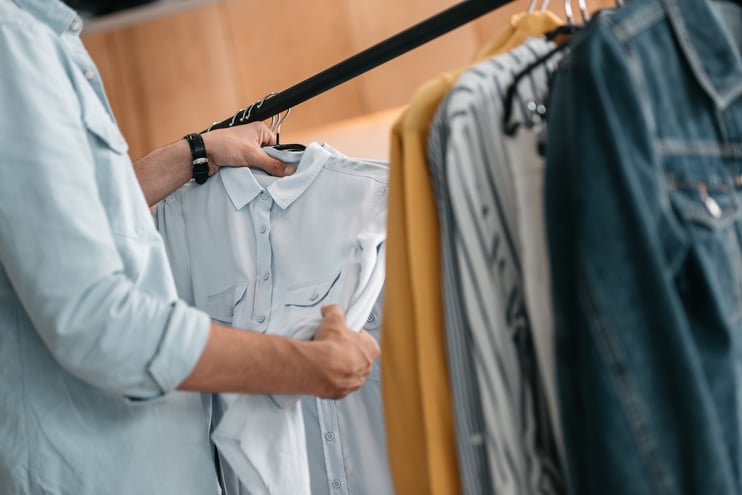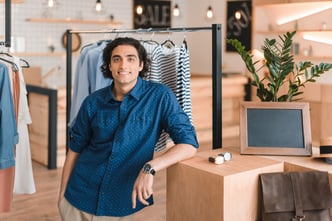 Millennial shoppers have made a big impact on the way companies are changing things around. When looking at what inspires millennials to buy, a lot of purchases were made from eco-friendly or charitable companies. Products are being pushed by magazines and blogs that are popular in the realm of millennials, such as Darling Magazine and Refinery29. Millennials are buying clothes, beauty products, workout gear, accessories and even water bottles from companies that make donations from purchases and market their eco-friendly campaign. Millennials readily pay more for a product they know helps the environment or a charitable foundation.
Millennial shoppers have made a big impact on the way companies are changing things around. When looking at what inspires millennials to buy, a lot of purchases were made from eco-friendly or charitable companies. Products are being pushed by magazines and blogs that are popular in the realm of millennials, such as Darling Magazine and Refinery29. Millennials are buying clothes, beauty products, workout gear, accessories and even water bottles from companies that make donations from purchases and market their eco-friendly campaign. Millennials readily pay more for a product they know helps the environment or a charitable foundation.
Clothing: Campaigns are changing the Game
Before the age of being eco-aware, many people did not know their clothing was covered by chemicals. These clothes were also made in sweatshops, but attire today has gotten a new face.
Companies like Madewell attract customers with their How We Do Well campaigns. Customers can buy products that donate to the Surfrider Foundation, which helps clean coastlines. They can also donate a pair of jeans to the store, and Madewell will recycle them as home insulations with help from Blue Jeans Go Green. The customer will also receive $20 off a new pair of Madewell jeans.
A popular brand among college students is Patagonia. This brand is known for their sturdy, high quality clothing and gear for outdoor adventures. Patagonia also recycles clothing with their Worn Wear sales. Consumers can buy new or used Patagonia items, wear them out and return them to Patagonia for rewards. Patagonia then recycles the item into new Patagonia gear and clothing. Patagonia also pledges 1% of sales to go to environmental grants. Another 1% goes to fund the preservation of natural parks and the environment. Patagonia asks their customers to buy less and recycle more, all while sporting ethical products.
An article by Forbes.com explains why millennial shoppers are willing to spend more money on sustainable products, and how companies are branding themselves to market to their consumers.
David O’Rouke is the creator of GoodGuide, an online service that provides customers with information regarding  the sustainability and health of products. In the article, O’Rouke says that social behavior has more of an impact on consumer buying patterns than scientific research. If someone were to see you sporting Madewell jeans and a Patagonia coat, they would be conscious that your decision to purchase those clothes means that you are thoughtful about environmental issues. “People see you in your Patagonia jacket, and the choice of your clothing similarly signals and creates the potential for status and for the social influence effect,” says O’Rouke.
the sustainability and health of products. In the article, O’Rouke says that social behavior has more of an impact on consumer buying patterns than scientific research. If someone were to see you sporting Madewell jeans and a Patagonia coat, they would be conscious that your decision to purchase those clothes means that you are thoughtful about environmental issues. “People see you in your Patagonia jacket, and the choice of your clothing similarly signals and creates the potential for status and for the social influence effect,” says O’Rouke.
Charities: Purchasing and Donating
Millennials also buy sustainable products because the companies behind them often use domestic materials and support philanthropy. Millennial women on college campuses everywhere accessorize daily with Alex and Ani bracelets. Like most eco-aware products, this jewelry brand is stationed in the United States. All of the jewelry produced by Alex and Ani is made in Rhode Island at the company headquarters.
Alex and Ani uses recycled metals. The philosophy that Carolyn Rafaelian, founder and creative director, founded the company on is a way of thinking that helps the environment and those in need. Their “Charity by Design” bracelets collaborates with charities such as Living Water International, ASPCA, UNICEF and more to create beautifully designed bracelets. Alex and Ani donate 20% of the purchase of each of these bracelets to the charity it supports. These bracelets have a “charity by design” tag on them, showing off the charitable purchase made by the customer.
Personal Care and Beauty Products Shine
Men and woman alike can find personal care and beauty products that don’t harm animals or the environment. Juniper Ridge is a company that makes cologne and oils that are vegan and donate 10% of purchases to Western Wilderness Defense.
Origins is a well-known skincare brand for men and women that advertise non-toxic and natural ingredients. They keep their packaging low and advertise a promise of low-fuel emitting transportation vehicles. They power their factories with solar panels and wind mills, plant trees with their Plant-A-Tree program, use plants in their products and refuse to test on animals.
Good advertising and marketing strategies helped these brands reach the reputable status that draws in their millennial shoppers. As a store that sells natural, charitable, sustainable or locally made products, simply putting a sign in your window expressing product’s origins can help boost millennial traffic and sales. Millennials seek out sustainable companies because they feel as though the smallest purchase can make a difference.
Helping Millennial Shoppers Make Purchases
CrossCheck supports businesses that are willing to go the extra mile to sell products that make a difference. Because of higher product costs, many of these items often sell for much more than their less eco-friendly counterparts. CrossCheck’s Multiple Check program makes sustainable, charitable and eco-friendly products more affordable and desirable to millennial shoppers.
With Multiple Check in place, consumers write 2 to 4 checks that will be deposited by merchants over a 30-day window. Consumers take their items home on the day of purchase, but the extended period gives them a little extra time to replenish their accounts. Meanwhile, merchants receive guaranteed funding after each check is deposited. To find out more, click here.



